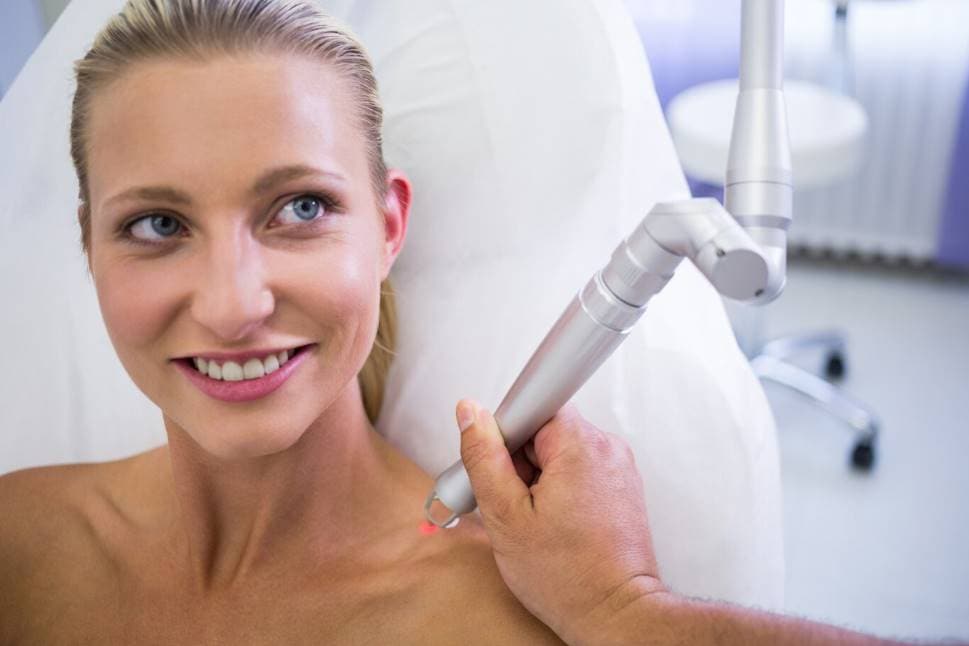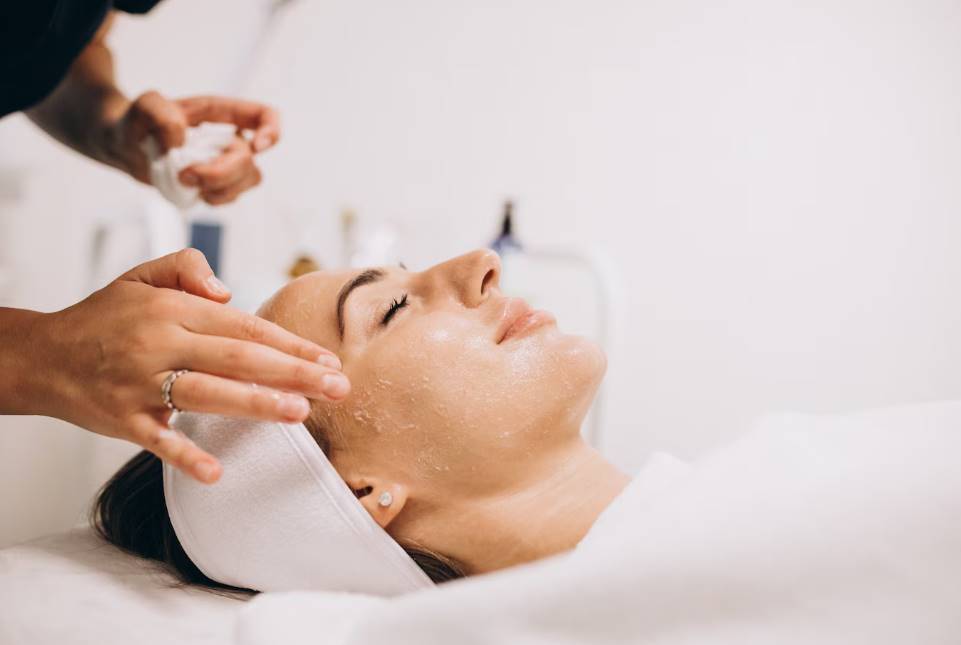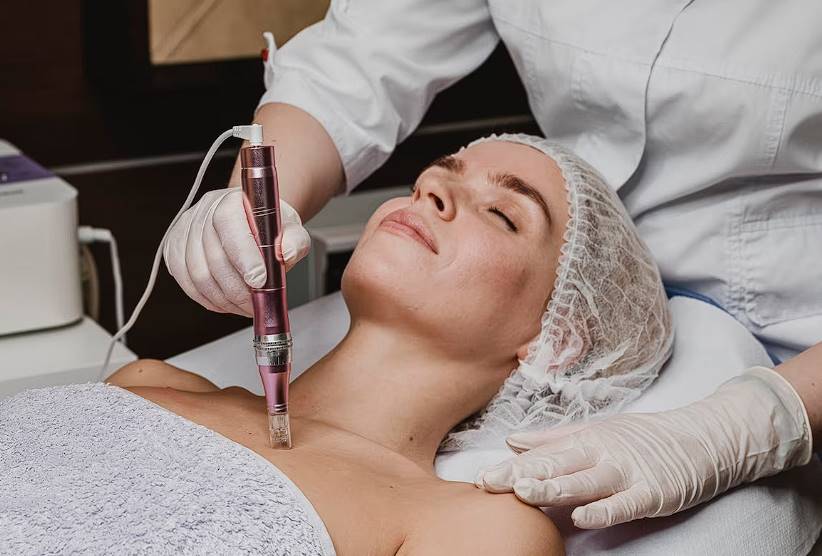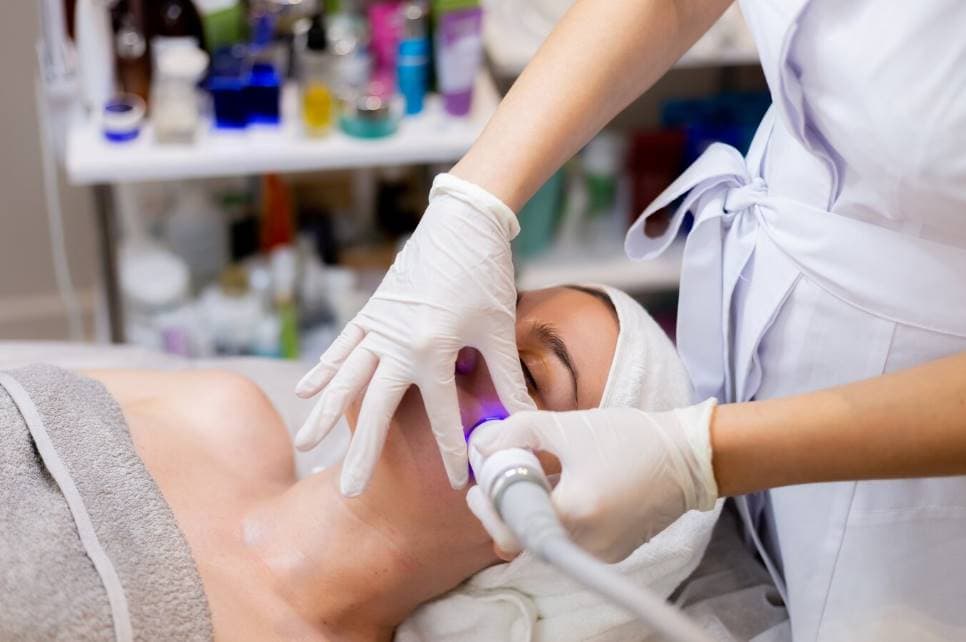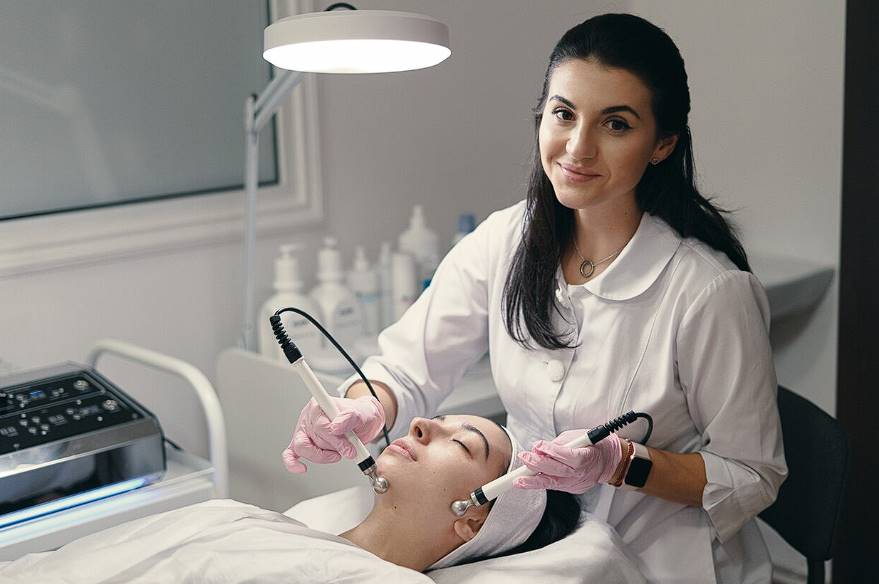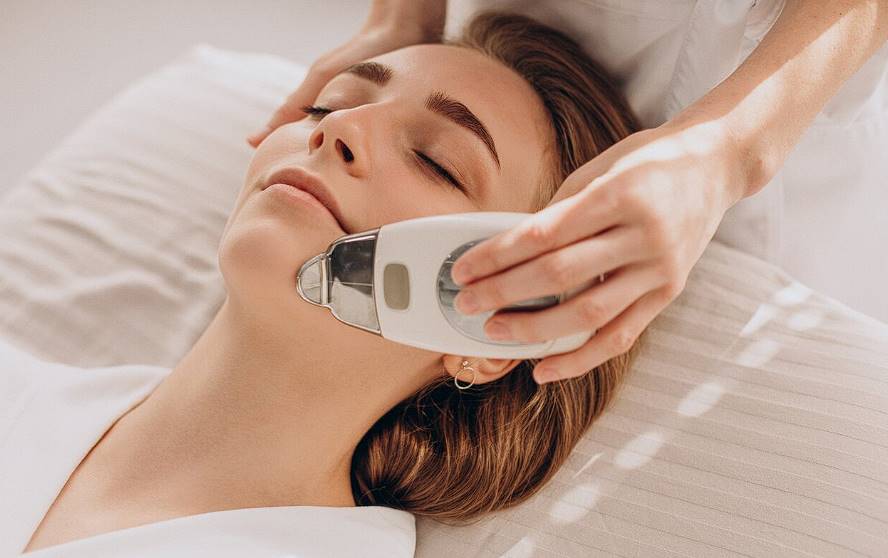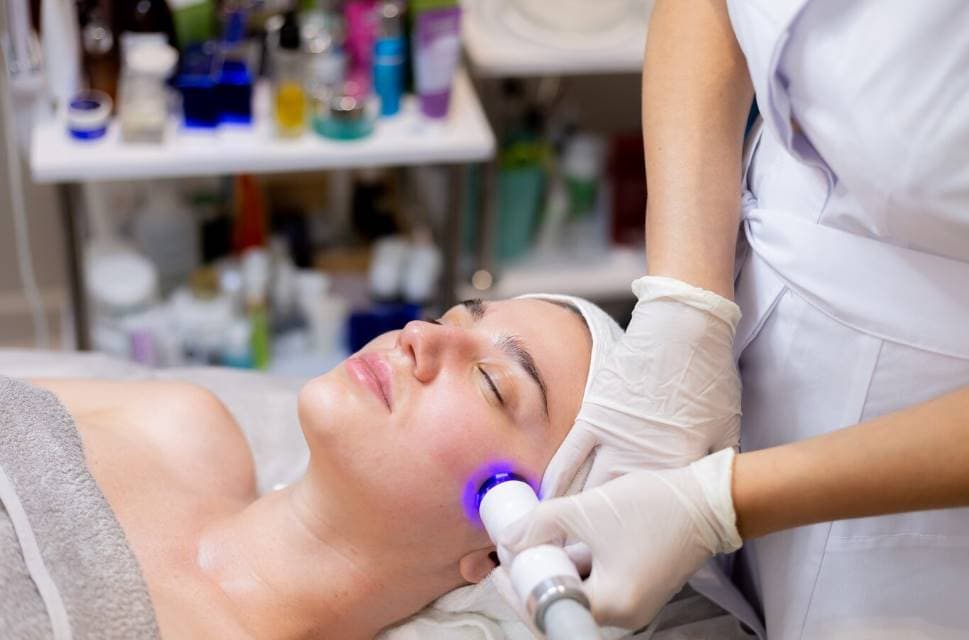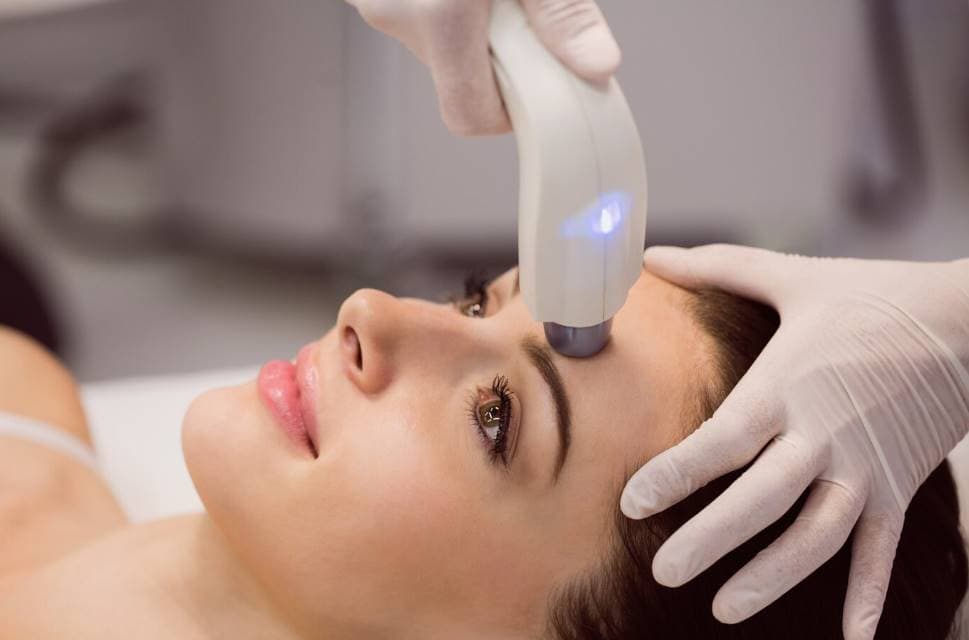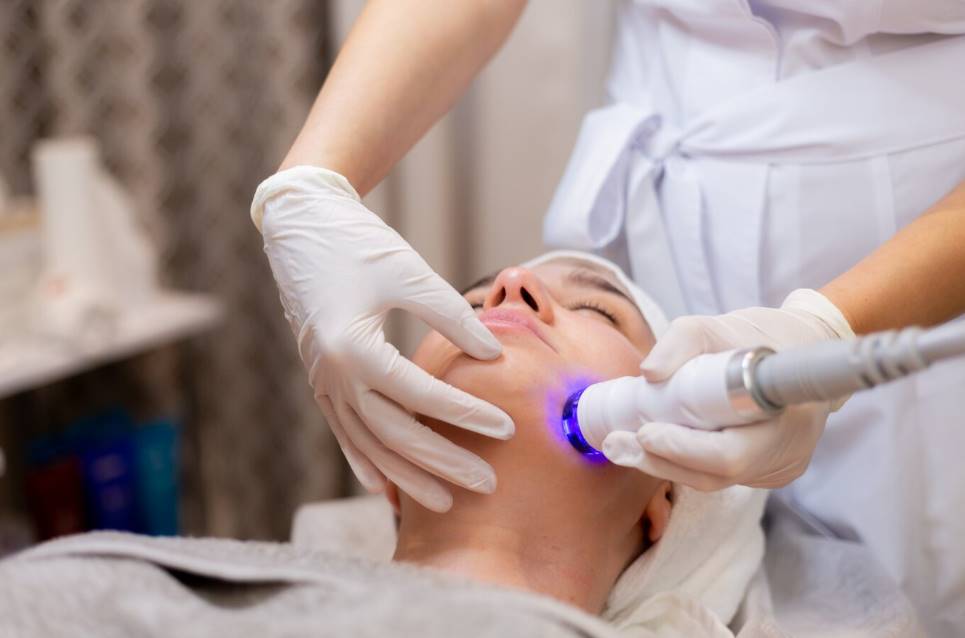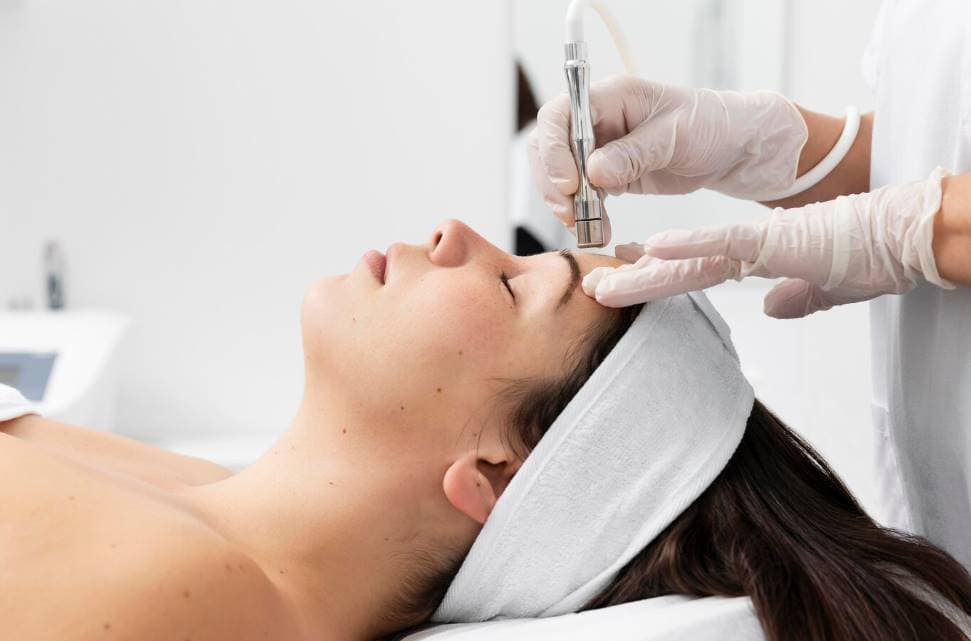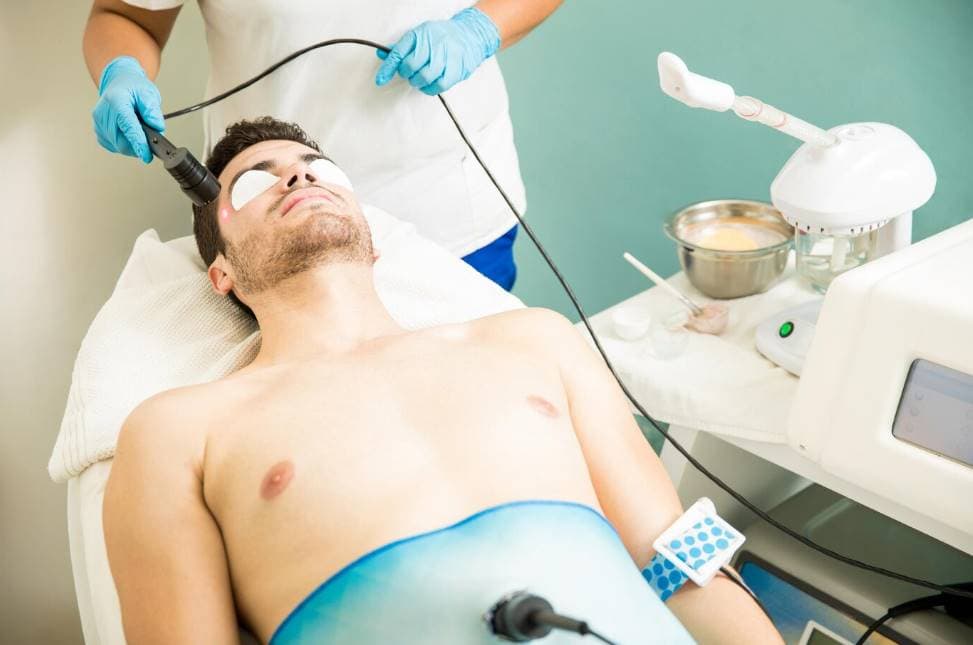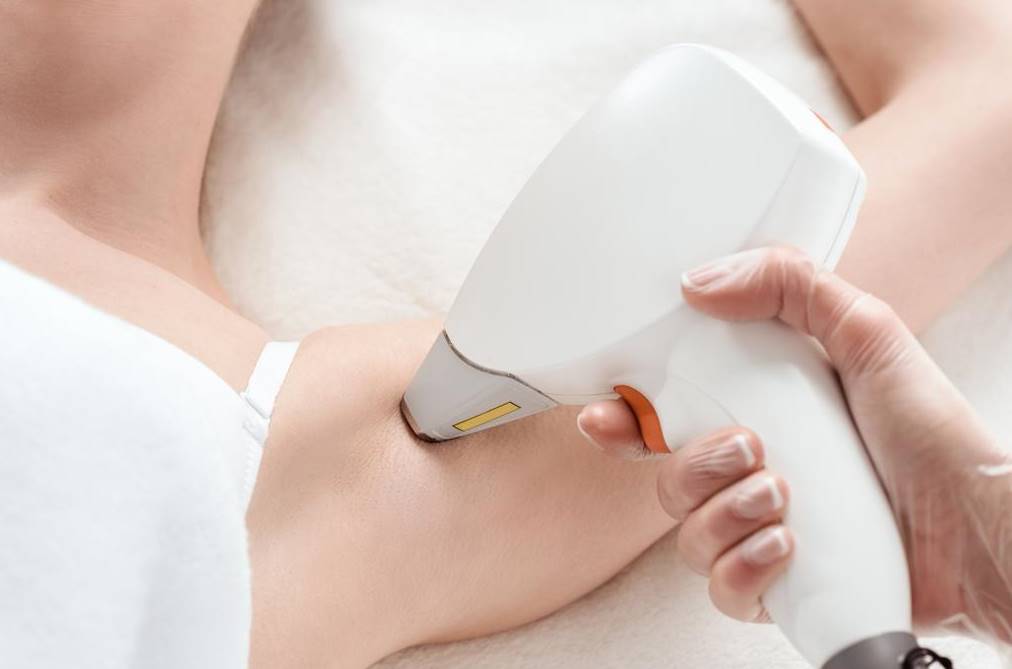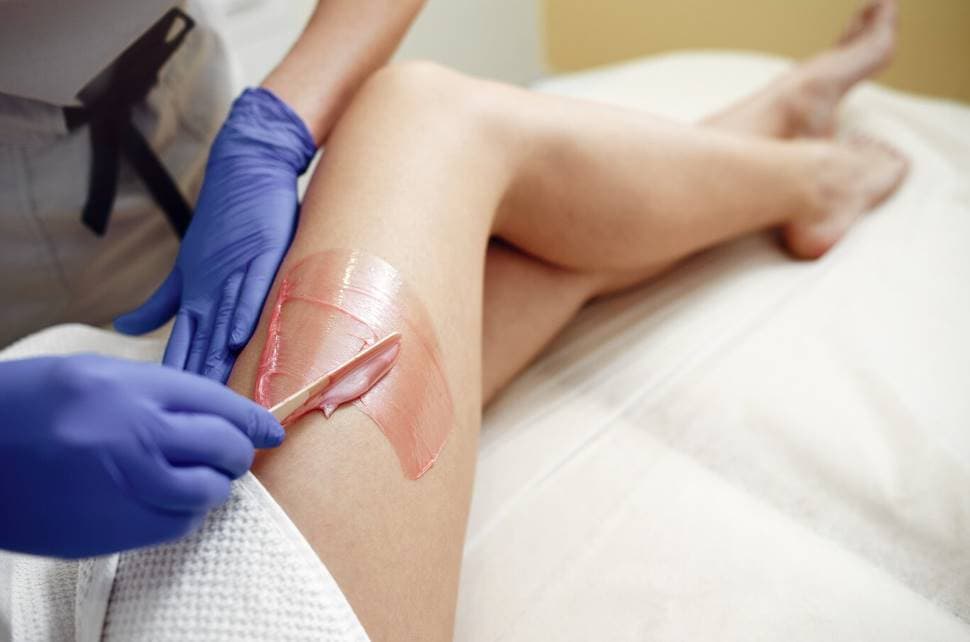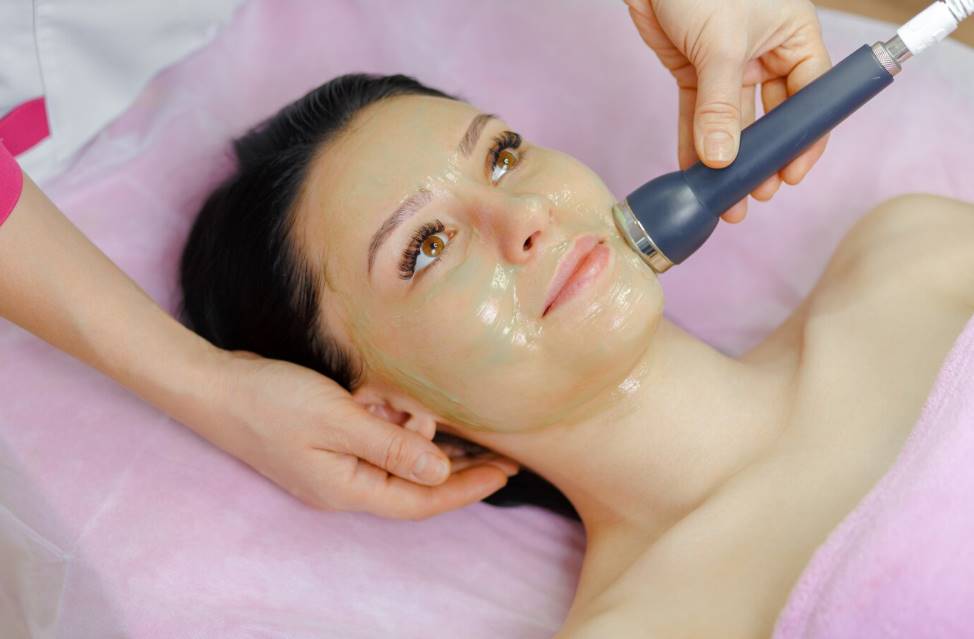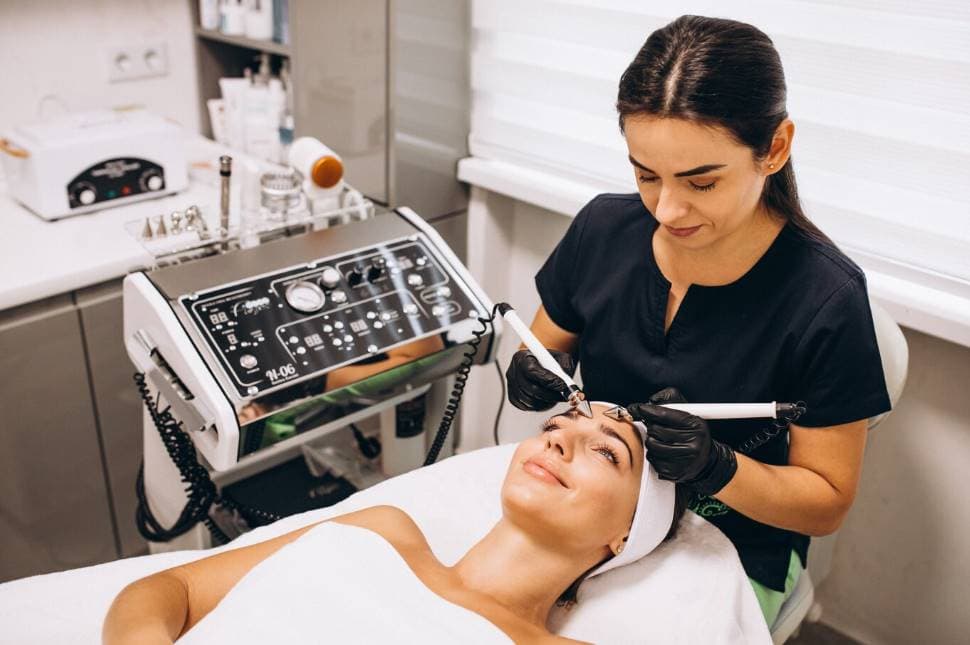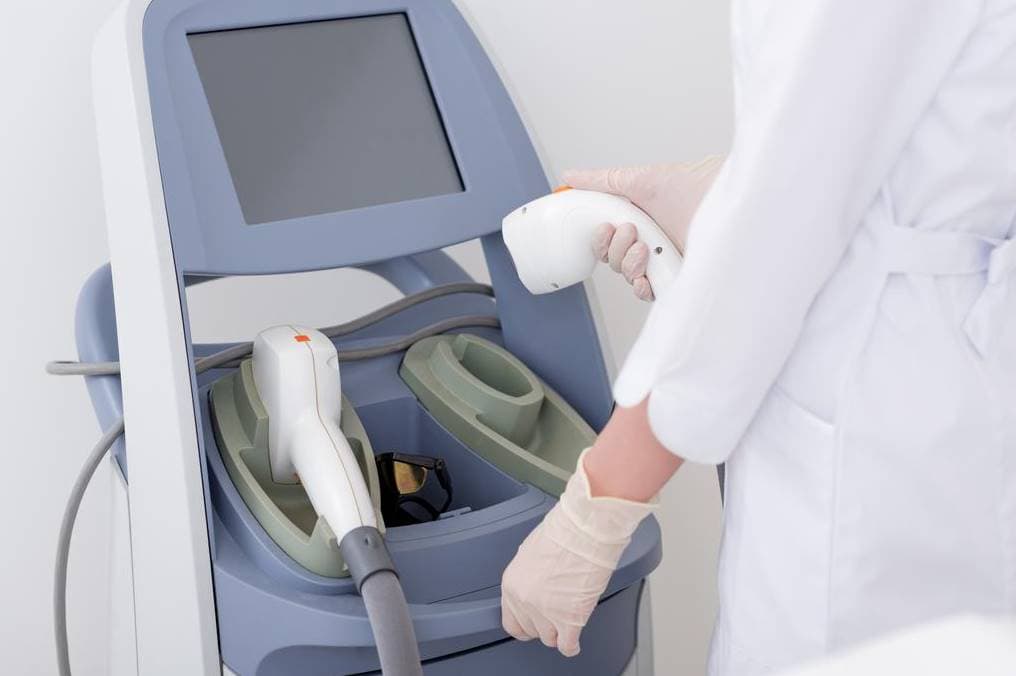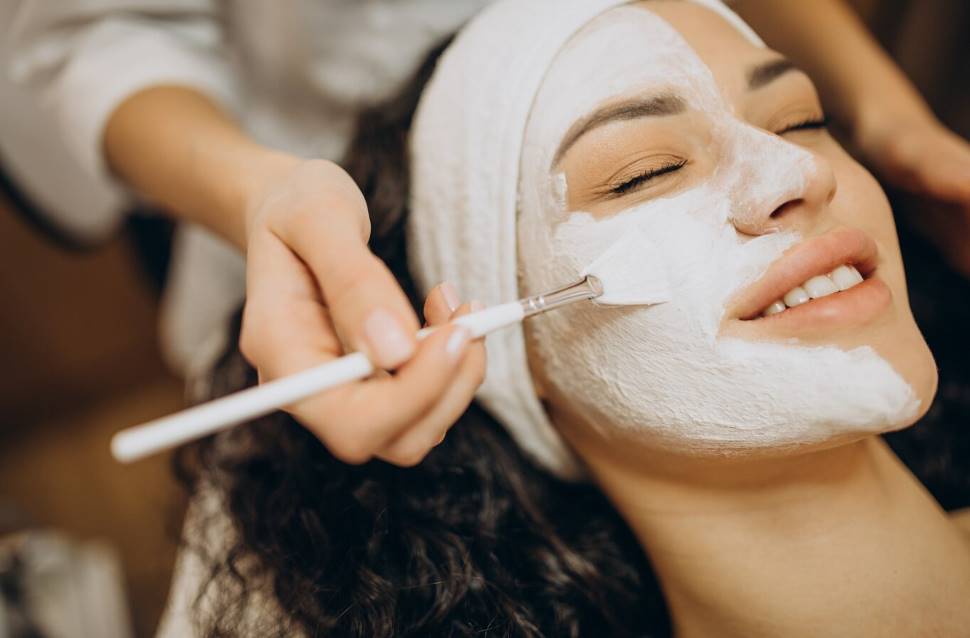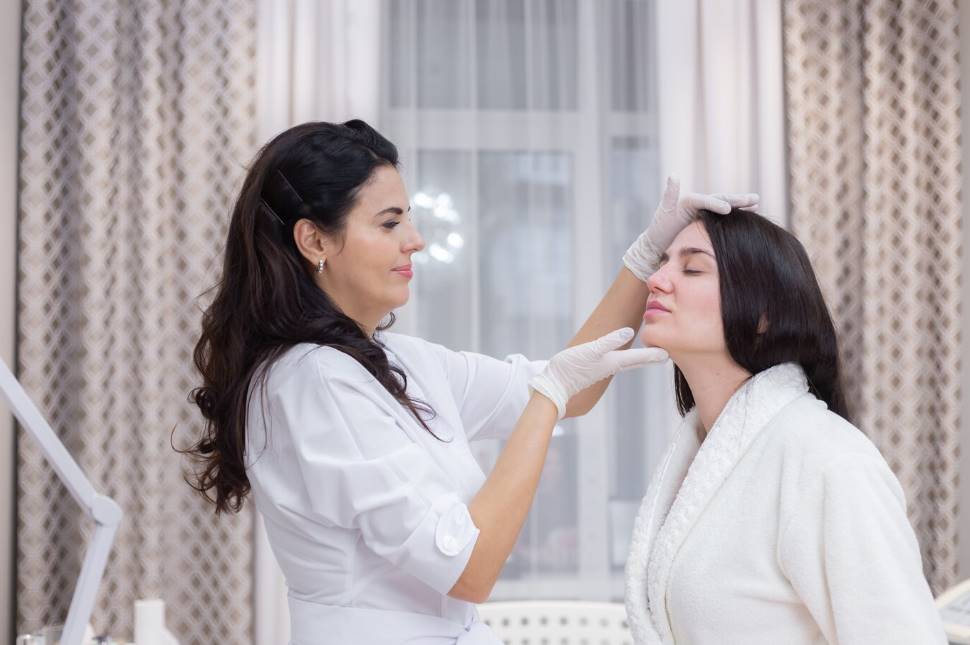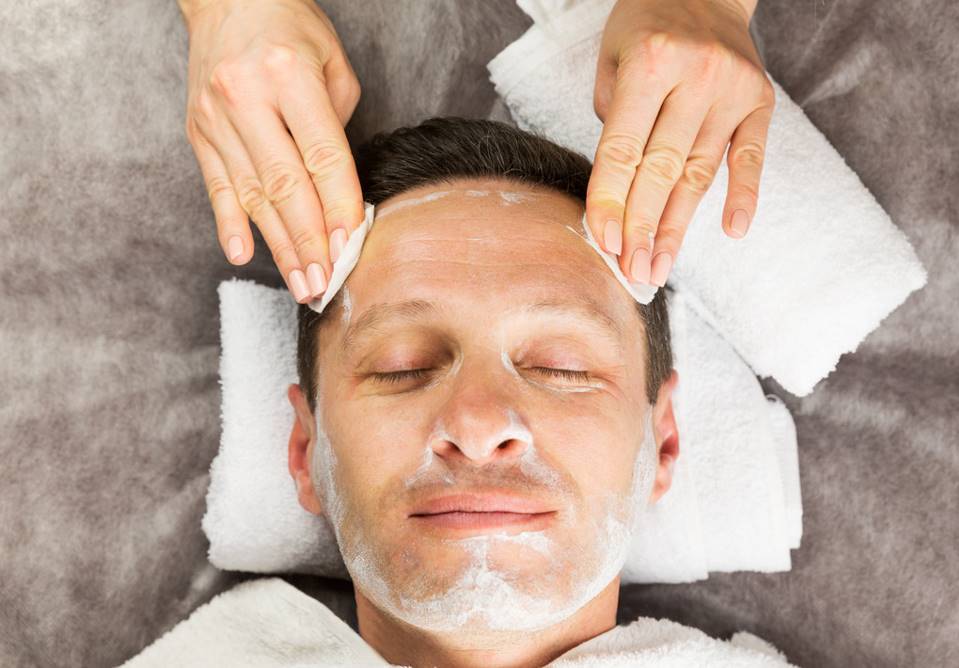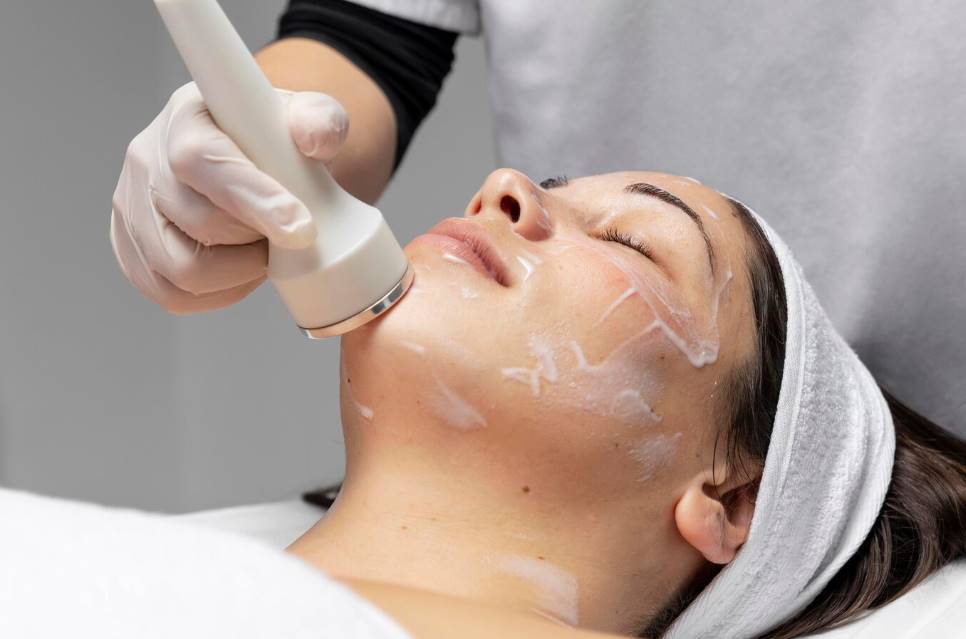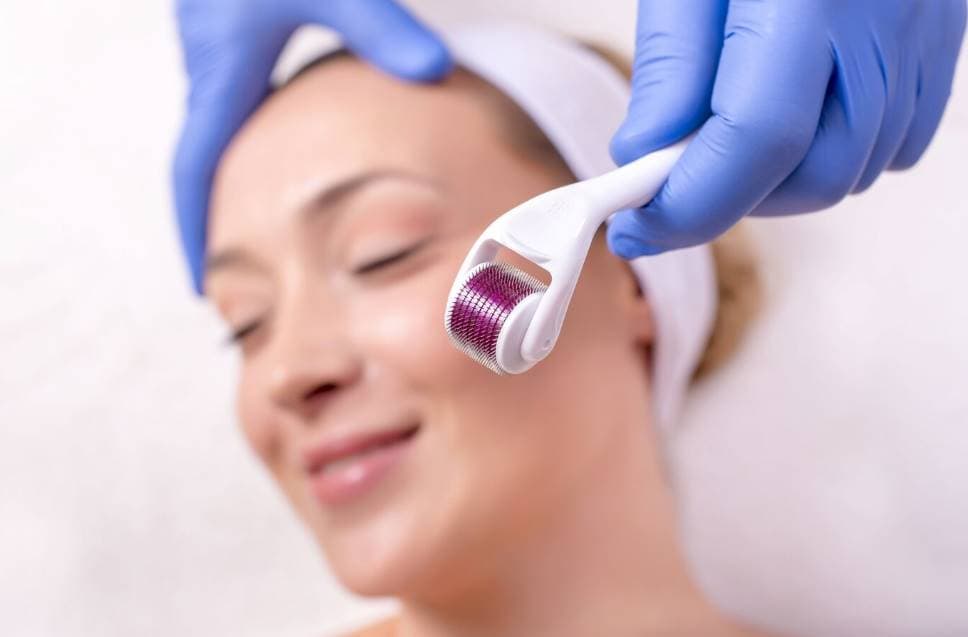Every scar indeed has a tale to tell, yet there are moments when you wish that tale had remained untold. Scars can often carry a heavy emotional weight. This is especially true if your scarring can be traced back to a stressful event. Or if you worry that your scars affect your self-esteem or how others view you.
It is not hard to fathom the appeal of scar-reduction methods. They allow people to hide or cover up scars of various forms, giving them back their self-esteem. Let's have a look at the process of scar treatment.
Why Do Scars Occur?
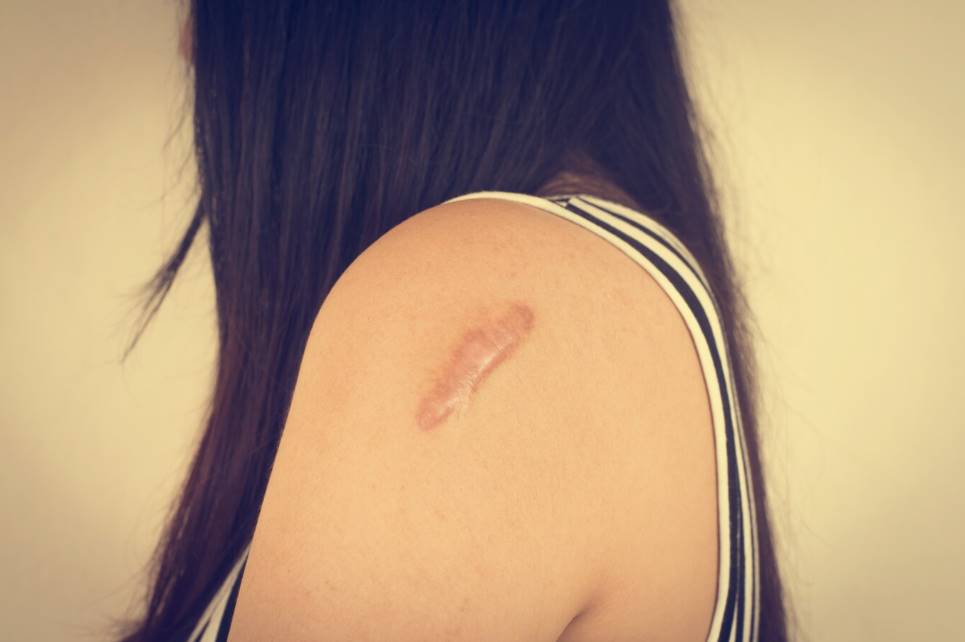
Scars form when skin is injured or damaged in some way. Scarring from this type of injury varies in size and depth depending on the severity of the initial wound. When you get a cut or scrape on your skin, the body rushes to restore the damaged region with all available resources. Because of this, scars don't have the same uniform appearance as healthy skin. Collagen, a protein, is produced by your body to repair the tear.
Scars can cause a variety of undesirable consequences, such as but not limited to:
- movement issues, particularly if the scar is extremely tight or covers a joint
- continued discomfort after the wound has healed
- itchiness
- dissatisfaction with or insecurity regarding one's physical appearance.
What Is Scar Treatment With Lasers?
Skin resurfacing with a laser or scar revision with a laser are two more names for the same treatment. This therapy reduces the look of fine lines, skin blemishes, age spots, and scars. Even if a scar has formed years ago, this treatment may still be successful. There is no need to stay in the hospital overnight for laser treatment because it can be performed in the doctor's office. The doctor will numb the treatment area with a local anaesthetic and may also give you a pill to help you relax.
Depending on the type of laser employed, scar tissue will either be removed or punctured during treatment. Both treatments encourage collagen formation, which in turn helps your body generate new, more supple skin. Your scar should now be lighter and less apparent after therapy. Scars can't be eliminated with laser treatment. You are, in effect, exchanging a larger, more obvious scar for a smaller, less conspicuous one. It could take more than one session to achieve the desired effect.
What Are The Most Commonly Used Scar Treatments?
Fractional C02 Laser
Both the Enhanced ActiveFX C02 laser resurfacing and the DeepFX laser resurfacing procedures produce remarkable scar-reduction results. In order to tighten the skin of a patient's face, a laser scanner is used in the Enhanced ActiveFX process. This allows the skin to contract, which has a multiplicative impact.
DeepFX therapy is effective in reducing the appearance of severe scars since it penetrates deeper into the skin. In most cases, a single treatment is all that is required to see improvement. One treatment with DeepFX may be all that's needed to noticeably improve the look of scars.
Fraxel Laser
The Fraxel laser employs microbeams of radiation to get deeper into the skin, where it stimulates the production of new collagen and refines the surface contour. Pigmentation from the sun or acne scars on the skin's surface can be reduced with a Fraxel laser treatment. Fraxel laser treatments for the full face typically take between 20 and 40 minutes, and the benefits should be seen right away. This method may be effective in reducing the appearance of moderate acne scars.
Picosecond Laser Treatment
An ultra-short pulse (picosecond) laser is used in addition to another laser to treat acne scars on the face. These laser tools can be found under the brand names PicoSure and PiQo4. These lasers use a "shock wave" approach, which gently induces new collagen, to heal acne scars and other skin irritations. In addition, laser treatments for acne scars tend to work quickly, especially on those that are pigmented.
Laser Resurfacing
Laser resurfacing works by ablatively vaporising the skin's outermost layers. The top layer of skin is vaporised and removed after being exposed to laser radiation pulses. As the wound closes, new skin will grow in its place. Laser resurfacing is a surgical alternative for people with deep scars.
What You Should Know Before Getting Your Scar Laser Treatment
It's easy to imagine a laser as a magic wand that can erase any scar. However, medical lasers are not toys. You need to know these things first to receive great results from laser treatment for a scar and avoid major side effects.
Scarring Cannot Be Eliminated By Laser Treatment.
Medical progress has led dermatologists to increasingly recommend laser therapy for scarring. The use of a laser can:
- Avoid having a scar that becomes prominent after surgery.
- Eliminate the discomfort and irritation caused by scars.
- If a scar is limiting your mobility, you should work to loosen it up.
A scar can be less obvious after laser treatment but won't go entirely. Laser scar therapy involves exchanging the original scar for a new, smaller one.
Your Outcomes Are Primarily Dependent On The Laser Treatment Provider's Expertise Level.
Dermatologists have been on the cutting edge of laser scar treatment research.
Many types of scars respond well to laser treatment when performed by a dermatologist who has passed the board certification exam. You may only get the desired outcomes from laser treatment if the individual doing the procedure has the necessary medical training and specialised knowledge of the skin. To some extent, it may even be harmful.
Prior To Receiving Any Laser Therapy, A Physician Consultation Is Essential.
Only trust people who claim they can remove your scar after first seeing a doctor. Share your medicine and supplement regimen with your dermatologist. You may need to temporarily cease taking medication to heal properly and avoid laser-related scarring.
The individual administering your laser therapy must have a thorough understanding of you. Everyone has their own special qualities. The person treating your scar with lasers should consider your skin type, the kind of your scar, and your general health. You should inform your dermatologist during your appointment if you:
- Develop cold sores
- Possess any kind of illness, including diabetes
- Smoke
- Take any vitamins or prescription drugs
Your dermatologist should also be aware of your expectations for therapy.
Sunscreen Is Essential Both Before And After Laser Treatment.
If you visit the dermatologist with a tan or sunburn, he or she will be unable to undertake laser treatment. Using a laser could severely damage your skin or change its colour. Your skin must be shielded from the sun while recovering after laser treatment. Another scar may form if the treated skin is exposed to the sun.
A Few Lifestyle Adjustments Might Be Required Before Treatment.
Dermatologists advise their patients who are undergoing laser treatment to:
- Smoking should be avoided for two weeks before laser therapy.
- Put down the aspirin and vitamin E; they only slow your recovery.
- For two to four weeks, you should avoid using skin care products containing retinoids or glycolic acid.
- If you know you're at risk for acquiring cold sores, you should take medicine to ward them off.
- Stay out of the sun and any tanning device. A tan or sunburn will prevent you from receiving treatment.
Laser Therapy May Be One Part Of Your Treatment.
Dermatologists frequently employ a combination of scar treatments to get optimal outcomes for their patients. A dermatologist may use a laser to treat a patient's acne scars, for instance, if the scars are particularly deep. Patient fillers are also an option.
More Than One Laser Session Can Be Required.
The best and longest-lasting benefits often come from a series of laser treatments, which is why dermatologists often recommend them. This is typically required whenever a non-ablative laser is used. There is no recovery period associated with this laser. However, you could need more than one session to get results.
The Treated Area Must Be Taken Care Of At Home Following Laser Treatment.
If you want the best outcomes from laser therapy and to avoid any potential side effects, it's important to follow your dermatologist's advice for at-home maintenance.
Outcomes Should Be Visible Later.
Laser scar therapy takes time, and you may see no benefits for several months.
Insurance Might Not Pay For It.
Scars can be treated with a laser to reduce their discomfort and itching. Scars can restrict movement, but laser therapy can help remove those restrictions. Insurance companies still view laser procedures as elective cosmetic procedures. Most health insurance plans do not pay for elective cosmetic surgery.
A Psychological Perspective On Scar Treatment
Last but not least, medical aestheticians should consider their patients' mental health when treating scars. Patients with face scars, such as acne scarring, may suffer from low self-esteem, worry excessively, and have unrealistic expectations regarding treatment outcomes. When treating scars of any kind, practitioners need to have an in-depth conversation with their patients about the treatment, its potential outcomes, and any risks involved.
This will help the patient feel more comfortable with the doctor and build the doctor-patient bond. The efficiency of the procedure depends on this connection. Therefore, all aesthetic practitioners should exercise caution and be pragmatic regarding outcomes and complications while examining patients' expectations/concerns and previous experiences with treating scars using various modalities to optimise patient satisfaction.
Why Scar Removal Is Beneficial

Scars change a person's look, but their existence can also have a significant psychological effect. Having facial scars accentuates this problem. Talking to our medical staff about laser scar removal is a good idea if you find yourself in this scenario and want to get rid of your scars.
Scarring to the face is relatively prevalent, and acne is one of the most common causes.
Although almost everyone has experienced at least a minor case of it at some point in their lives, not everyone has had it severely enough to be at risk for scarring. Acne can worsen into cystic acne, which can leave scars if it is not treated. Laser scar removal can also remove scars left behind after surgery or trauma.
Scar removal, regardless of the cause of the scarring, can help you look like new by restoring your skin's natural texture and tone. Scar removal has the added benefit of removing unsightly defects that harm one's confidence. One popular option for removing unsightly scars is laser therapy. Your scars will be treated using a laser or other light source throughout the treatment.
The body's natural healing mechanisms may work as the skin absorbs the energy, resulting in fresh, scar-free skin. The treatment's energy output also boosts collagen and elastin production. Some filler ingredients can help level out scarred skin and restore its fullness.
Are There Risks Associated With Laser Scar Removal?
Laser treatment may have the following unwanted effects:
- Worsening cold sores. Cold sores might worsen after laser treatments, especially if performed near the mouth. If you're worried about getting the flu from the treatment, tell your doctor so they can prescribe you an antiviral drug beforehand.
- Milia. Milia are inconspicuous lumps that can be either white or red. They don't pose a significant threat but can be a nuisance or an eyesore. They can be scrubbed away with a warm cloth and some gentle exfoliation. Your dermatologist can remove them if this doesn't work.
- Hyperpigmentation. Laser treatment may cause your skin to darken. If you're self-conscious about your skin tone, try a skin-lightening cream. Apply sunscreen before going outside after treatment to avoid sun damage.
How Much Does Laser Treatment Cost?
It's possible that laser treatments for scars won't be covered by health insurance, given that they're considered purely cosmetic. Treatment costs are affected by:
- the scar's dimensions
- the number of scars
- the number of laser sessions that you will require
More than one laser session will likely be required to achieve the desired outcomes. Every time you go to the doctor, you'll have to fork over some cash. It would help if you talked to multiple doctors to understand the range of out-of-pocket costs associated with laser treatment. In addition to the cost of the operation itself, some clinics require payment for an initial consultation. With this procedure, you will only need to take a little time from work to recover. You can return to work the next day or within a few days.
Conclusion
Scars can be a source of emotional distress and self-esteem issues, especially when they are a result of injury or damage. Laser treatment, also known as skin resurfacing or scar revision, is a method used to reduce the appearance of fine lines, skin blemishes, age spots, and scars. This treatment can be performed in a doctor's office without the need for overnight stays. The laser used in the treatment either removes or punctures scar tissue, encouraging collagen formation and generating new, more supple skin.
Some common scar treatments include Fractional C02 Laser, Fraxel Laser, Picosecond Laser Treatment, and Laser Resurfacing. Fraxel Laser uses microbeams of radiation to stimulate collagen production and refine the surface contour, while Picosecond Laser Treatment uses an ultra-short pulse (picosecond) laser to treat acne scars. Laser Resurfacing works by ablatively vaporizing the skin's outermost layers, allowing new skin to grow in place as the wound closes.
In summary, laser treatment is a popular method for reducing the appearance of scars, reducing their appearance, and improving self-esteem. It can be a surgical option for those with deep scars and other skin issues.
Before undergoing laser treatment for a scar, it is essential to understand the potential side effects and medical implications. Scarring cannot be eliminated by laser treatment, but medical advancements have led dermatologists to recommend laser therapy for scarring. Laser scar therapy can help avoid prominent scars, eliminate discomfort and irritation, and loosen up scars that limit mobility. The outcomes depend on the laser treatment provider's expertise level and medical training.
A physician consultation is essential before receiving laser therapy, and patients should inform their dermatologist about their skin type, scar type, and general health. Sunscreen is essential both before and after treatment, as a tan or sunburn may prevent treatment. Lifestyle adjustments, such as avoiding smoking, using aspirin and vitamin E, and avoiding skin care products containing retinoids or glycolic acid, may be necessary.
A combination of laser treatments, such as acne scar treatment or patient fillers, may be employed for optimal outcomes. More than one laser session may be required for the best results. The treated area must be cared for at home following treatment to avoid potential side effects.
Laser scar therapy takes time and may not be covered by insurance. Insurance companies view laser procedures as elective cosmetic procedures, and most health insurance plans do not cover elective cosmetic surgery.
Medical aestheticians should consider patients' mental health when treating scars, as patients with face scars may suffer from low self-esteem, excessive worry, and unrealistic expectations regarding treatment outcomes. In-depth conversations with patients about the treatment, potential outcomes, and risks involved are crucial for building a doctor-patient bond and ensuring patient satisfaction.
Scar removal is beneficial for restoring skin's natural texture and tone, as well as removing unsightly defects that harm confidence. Laser therapy is a popular option for removing unsightly scars, using a laser or other light source to stimulate the body's natural healing mechanisms. However, laser treatment may have unwanted effects, such as worsening cold sores, removing milia, and hyperpigmentation.
Costs for laser scar treatment can vary depending on the scar's dimensions, the number of scars, and the number of laser sessions needed. It is recommended to consult multiple doctors to understand the range of out-of-pocket costs associated with laser treatment. Despite the potential for recovery time, laser scar treatment can be a cost-effective and efficient option for patients.
Content Summary
- Every scar narrates a story, which sometimes we wish remained untold.
- Scars can carry significant emotional burdens.
- Scars can sometimes be linked to stressful events.
- They can influence self-esteem and social perceptions.
- Scar-reduction methods help people regain their confidence.
- Scars form when the skin sustains injury or damage.
- The appearance of scars varies based on the severity of the wound.
- The body actively repairs damaged skin, making scars look different from healthy skin.
- Collagen, a protein, is essential for scar repair.
- Some scars can cause movement issues, especially over joints.
- Scars may continue to cause discomfort even after the wound has healed.
- Other issues include itchiness and dissatisfaction with one's appearance.
- Laser scar treatment, also known as skin resurfacing, reduces the appearance of scars.
- The treatment can be performed in a doctor's office without hospitalisation.
- The treatment area is numbed using local anaesthesia.
- Depending on the laser type, scar tissue is either removed or punctured.
- Laser treatments promote collagen production.
- The outcome is a lighter, less noticeable scar.
- The treatment might need multiple sessions for desired results.
- Fractional C02 Laser provides significant scar-reduction results.
- The Enhanced ActiveFX C02 process tightens facial skin.
- DeepFX treatment is potent against deep scars, often requiring just one session.
- Fraxel Laser stimulates new collagen production and refines the skin's surface.
- Fraxel Laser can reduce sun pigmentation and acne scars.
- Picosecond Laser Treatment uses ultra-short pulse lasers for acne scars.
- Brands like PicoSure and PiQo4 employ the "shock wave" method for collagen induction.
- Laser Resurfacing vaporises the skin's outermost layers.
- The technique is suitable for deep scars as it allows new skin to replace the old.
- Lasers aren't magical scar erasers; they require expertise for effective use.
- Laser treatment reduces scar prominence but doesn't remove scars entirely.
- Successful laser treatment is highly dependent on the expertise of the provider.
- Prior consultation with a physician is crucial before undergoing laser therapy.
- The laser therapist should be fully aware of the patient's medical history.
- Sun exposure before and after treatment can damage the skin and hinder results.
- Certain lifestyle adjustments, such as avoiding smoking, are recommended before treatment.
- Laser therapy might just be one component of a comprehensive scar treatment plan.
- Several sessions might be needed, especially with non-ablative lasers.
- Post-treatment care is essential for achieving the best results.
- Results from laser therapy might take several months to manifest.
- Most health insurance plans view laser treatments as cosmetic and might not cover the costs.
- Aesthetic practitioners should consider the psychological aspects of scar treatment.
- Building a doctor-patient bond is vital for treatment efficacy.
- Practitioners must set realistic expectations and understand patients' concerns.
- Scars, especially on the face, can have profound psychological impacts.
- Acne is a common cause of facial scarring.
- Talking to medical professionals about laser scar removal can be beneficial.
- Scars alter one's appearance and can deeply affect one's psyche.
- Acne scars are prevalent, affecting many people's self-esteem.
- Medical aestheticians should be pragmatic about treatment outcomes.
- Open conversations between doctors and patients optimise satisfaction.
Frequently Asked Questions
Scar treatment cost depends on the plan, including the frequency and type of treatments and who performs the treatments. In some cases, Medicare may cover the cost of your procedures, particularly if your scars restrict movement. Call the clinic to book a consultation, and we’ll provide an accurate quote and a detailed treatment plan.
Scar treatments at our Melbourne clinic are non-invasive, and we make sure you’re comfortable during your treatment. We use whatever is necessary regarding anaesthetic cream or local anaesthetic to ensure you don’t feel much at all. Some inflammation after treatments is normal but very tolerable.
We can treat surgical scars as soon as the stitches are out, which is the best time to start work on scarring. The sooner we get to it, the better the outcomes.
Beauticians can treat scars of any age, though younger scars tend to respond more readily to treatment; it doesn’t matter how old your scars are. They can treat scars of any age.
We individualise our treatments to the scar and the person, and there is no one-size-fits-all approach to softening, fading or shrinking a scar. Each scar will respond differently to treatment, but how long that will take will depend on the specifics of the treatments used and the nature of the scar.
